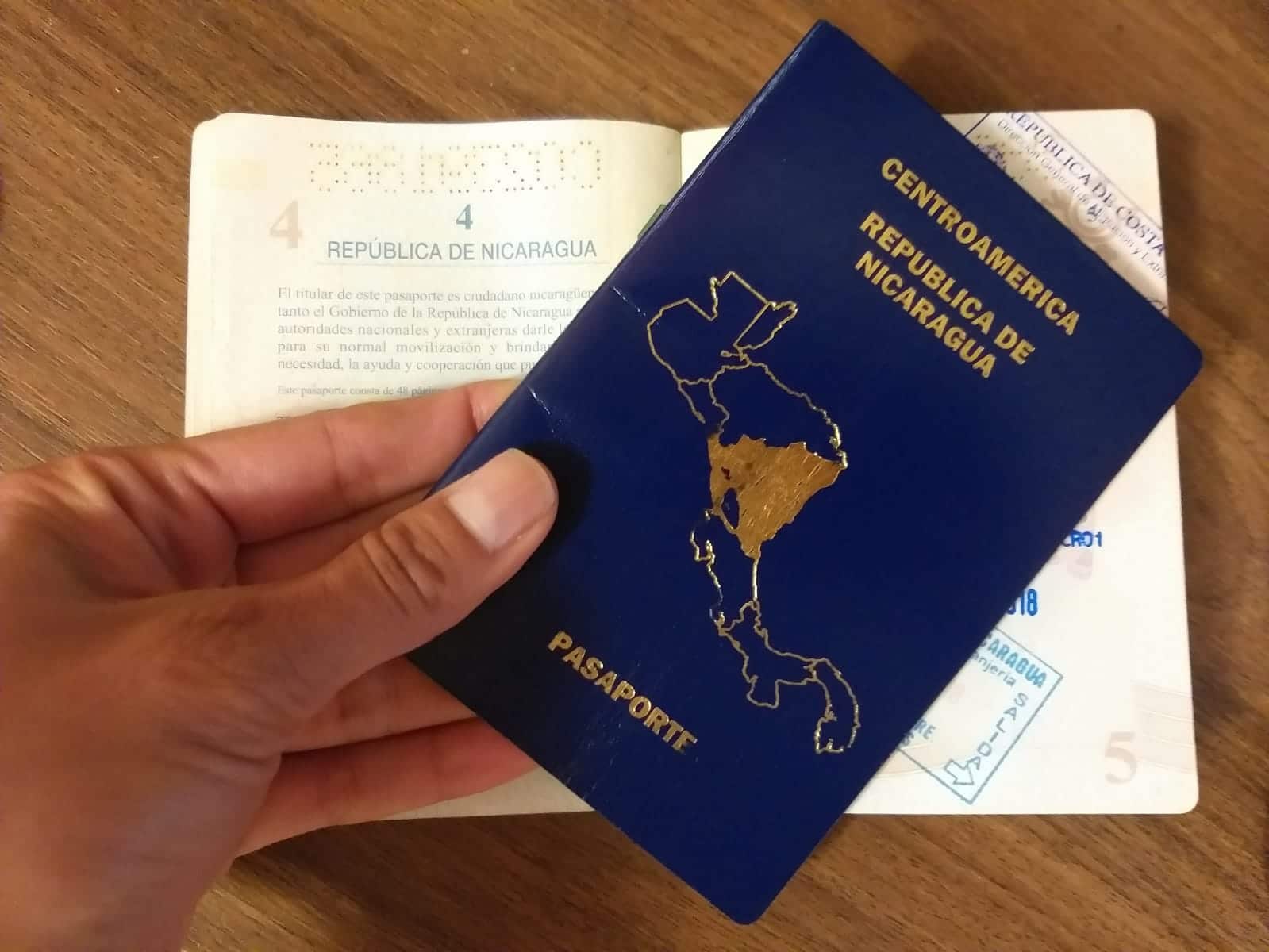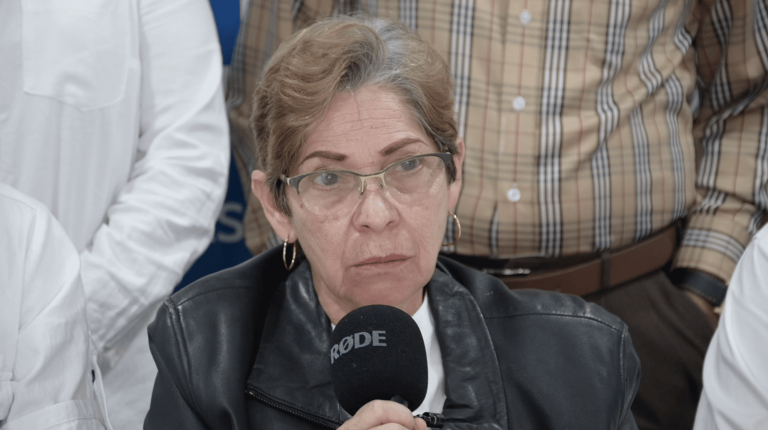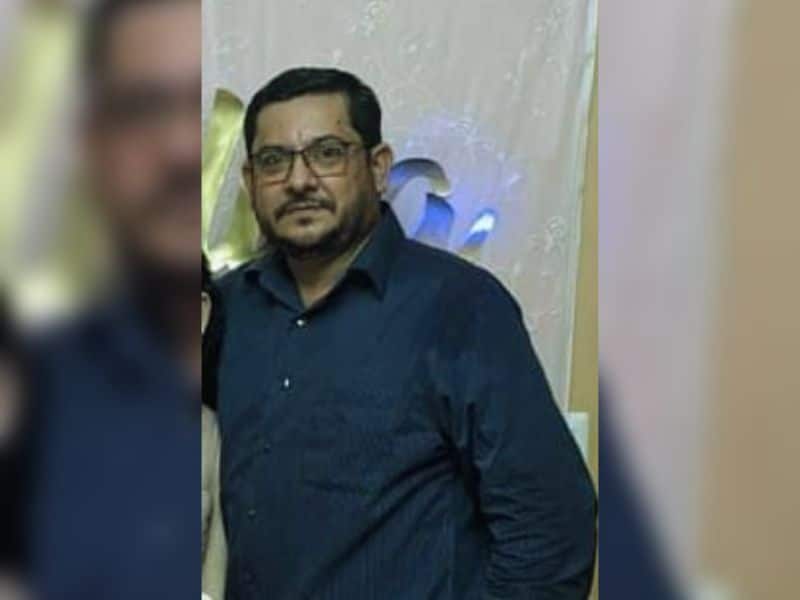25 de octubre 2022

Nicaragua: Public Employees Hindered from Traveling to USA

PUBLICIDAD 1M
PUBLICIDAD 4D
PUBLICIDAD 5D
Persecuted political Dulce Porras laments the uncertainty her family is suffering, sparked by the imprisonment of one of her brothers in Nicaragua

Thirty-six days after Freddy Martin Porras Garcia was taken prisoner, his four siblings in exile are in their own prison of uncertainty, living through unbearably terrible days. Among them is opposition activist Dulce Porras. Back in her home country of Nicaragua, her brother Freddy, a 51-year-old sales executive, has been accused of conspiracy and spreading fake news.
Freddy Porras’ birthday fell on October 15th. He spent it in the infamous El Chipote jail in Managua, just a few days before the initial hearing for his case. That hearing, held on October 21, only multiplied the doubts of his exiled family members, as well as relatives still in Nicaragua.
At the time that Confidencial spoke with Dulce Porras, only 24 hours had passed since the court session and little information was available. Freddy’s wife was not allowed to see him, said Porras, although she had gone to the jail in hopes of accompanying him in the hearing. At the time of the interview, she, too, had no further information.
“They make you suffer through your family members suffering in jail. Knowing they’re in there, in their hands [the regime’s functionaries],” Dulce Porras stated sadly via telephone.

Freddy Porras is now a political prisoner. Courtesy photo
The case of this sales executive is being heard in Managua’s Sixth District Criminal Hearings Court, presided over by Judge Rolando Sanarrusia Mungia. At the beginning of October, this judge was assigned to process 13 prisoners of conscience, among them Porras and three family members of another exiled political activist – Javier Alvarez Arguello. In the case of Alvarez, the regime has jailed his wife, his daughter and his son-in-law. Also among Judge Sanarrusia’s cases is that of the son of human right activist Andrea Margarita del Carmen, formerly the director of the writers’ group PEN Nicaragua.
These three cases seem to comprise a new tactic being employed by the regime: using family members of wanted political figures as hostages, to lure and capture those they seek.
Dulce Porras is a former leader of the Carazo chapter of the now-outlawed UNAMOS opposition party – formerly the Sandinista Renewal Movement. She confirmed that her brother’s lawyer was allowed to enter the hearing room and speak with Freddy for a few minutes. However, the family was still left in a kind of anguished limbo, without knowing much about the prisoner’s immediate future.
In her telephone interview, the opposition leader expressed that she had the lowest possible opinion of the judges, prosecutors and police agents who form the cogs of the repression exercised against the political prisoners. She describes them all as functionaries capable of sustaining a lie, who come to the hearings with their concluding documents already prepared, leaving only a space to add the names. “The judges and prosecutors are accomplices in this barbarity; They’re the dictatorship’s firing squad,” she asserted.
In the October 1 preliminary hearing, according to the online documentation posted, the lawyer at the time manifested the lack of clarity in the charges filed by prosecutor Carlos Rafael Espinoza Castilla, yet another of those who collaborate in the persecution of Nicaragua’s prisoners of conscience.
The public defender, who was initially representing Freddy Porras, noted that not even a telephone number was offered to confirm there’d been some suspicious telephone call, some connection. There was no e-mail evidence, nothing in Freddy Porras’ WhatsApp or Facebook social media accounts, no concrete example of a re-Tweet, or even a “like” for some post the Public Prosecutor’s office found objectionable. The lack of these, the lawyer maintained, constituted “a reason that this accusation should not be admitted.”
Nonetheless, the judge continued firmly with the process, increasing the pain for Dulce Porras and her three siblings who live outside the country, “because they’re related to me,” she explained. Freddy Porras’ defense is now in the hands of a private lawyer.
“What can they possibly accuse my brother of? Of being my brother? ‘Aha! I accuse you because you’re Dulce Porras’ brother; I accuse you because you’re the brother of so and so.’ True, there are four of us in exile, but that’s not a crime. The crime is committed by the dictatorship when they banish us, steal everything from us, when they make us leave our country. We weren’t the ones who committed a crime,” she reiterated.
The opposition leader had previously been a victim of the repression – they attempted to burn down her house in 2018. She was also witness to the difficult days that Carazo residents suffered between April and July of that same year, 2018, when Nicaragua experienced the horror of the government crimes.
Those days of April 2018 were tumultuous ones, in which the population went out on the streets by the thousands, all over the country, to demonstrate peacefully and ask for an end to the rule of Daniel Ortega and Rosario Murillo.
The government’s response to this opposition was brutal repression at the hands of the police and paramilitary. The number of fatalities in Nicaragua in the context of the protests totaled 355, according to the Inter-American Commission for Human Rights, in addition to 2,000 injured.
The dictatorship’s repressive apparatus launched incessant attacks against the population in the Carazo department, located some 18 miles from Managua. One of the bloodiest days was July 8, 2018, when 22 people were killed. These are events that Dulce Porras swears should not be forgotten, although four years have now passed.
In order to avoid accountability for the grave human rights violations like the ones that occurred in Carazo, the regime of Daniel Ortega and Rosario Murillo asserted without proof that they’d been the victims of an attempted coup d’etat. This assertion was contradicted by the abuses documented by international organizations.
Meanwhile, in September the country entered its fourth consecutive year of living under a de facto police state, with the dictatorship firmly squashing the right to protest. Amid this panorama, the civil rights of the population continue deteriorating. There are now a total of 219 political prisoners – Freddy Martin Porras, the sales manager, among them.
This article was originally published in Spanish in Confidencial and translated by Havana Times
PUBLICIDAD 3M
Periodista nicaragüense, exiliado. Comenzó su carrera en el año 2000, cuando todavía era estudiante. Por sus destacadas investigaciones periodísticas ha ganado el Premio Ortega y Gasset, el Premio Internacional de Periodismo Rey de España, el Premio a la Excelencia de la Sociedad Interamericana de Prensa, y el Premio Latinoamericano de Periodismo de Investigación del Instituto Prensa y Sociedad (IPYS).
PUBLICIDAD 3D